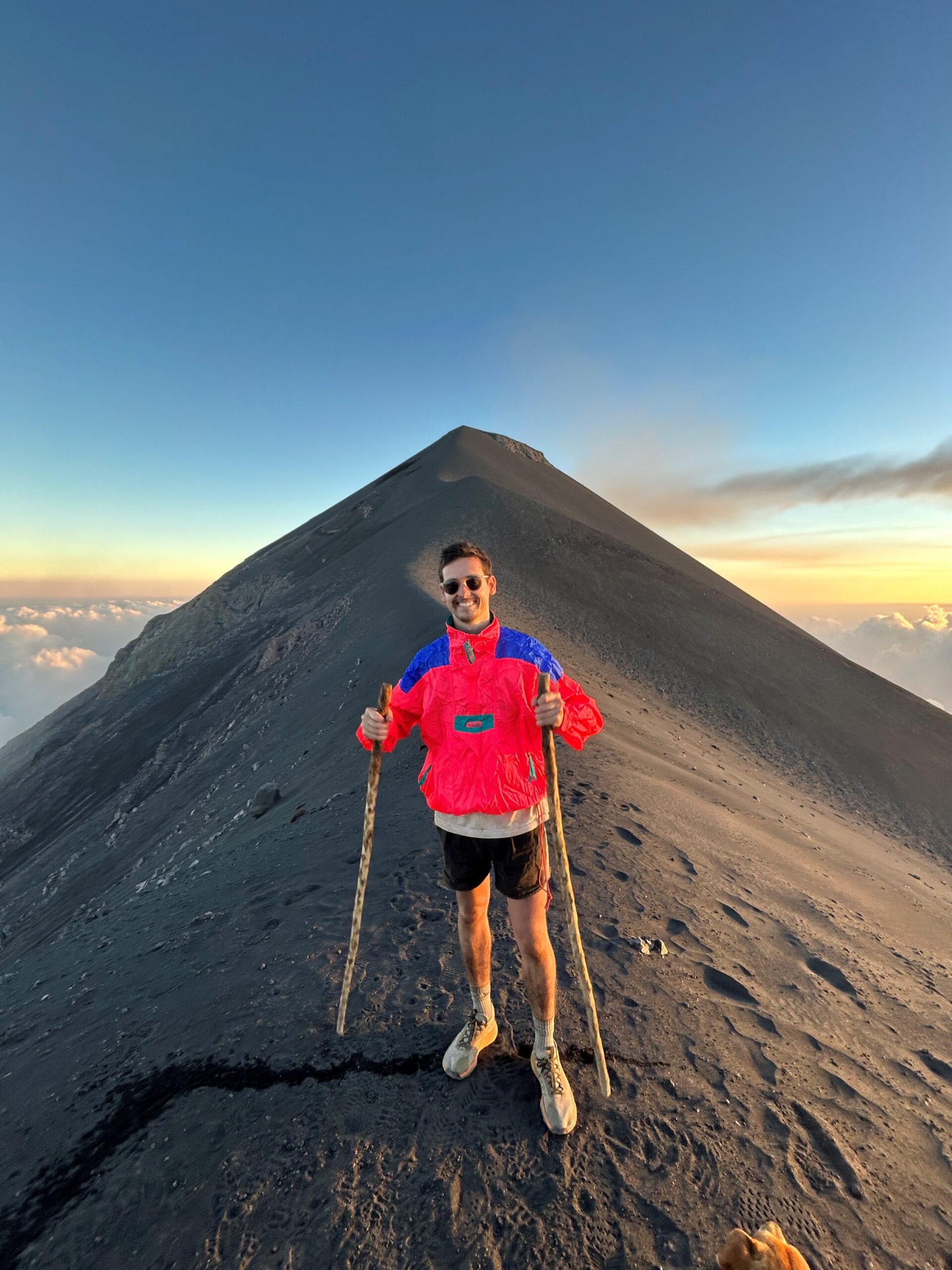Andrew Harris
(OTG 2014)
- Home
- |
- Community
- |
- The Trinity Community
- |
- Old Trinity Grammarians
- |
- Andrew Harris
- Home
- |
- Community
- |
- The Trinity Community
- |
- Old Trinity Grammarians
- |
- Andrew Harris
To fully appreciate the part of the world you live in, you have to see how other people do it. I’ve seen a lot of countries that have been affected by war, and by oppressive governments and political systems, which obviously makes me very grateful for where I’ve come from. I think I’ve come back to Australia with more of an open mind.
I really want to give back some of the hospitality I’ve been shown, and just to really embrace different cultures, because we can learn from them. And to always be hungry to learn more, and not just from a book – I’ve learnt so much from just travelling and talking to cab drivers and staff in cafes – you just meet people and you learn.
I started in Japan and then Morocco, then the rest has been in Europe starting in Russia, then working through Eastern Europe, Southern Europe, Central Europe and now coming into Western Europe. I’ve been very, very lucky to do that. I’ve met a lot of people, learnt a lot of things, had some things go well and some things go not so well. But that’s all part of it – travelling’s one of the best things you can do because it actively bridges cultures and brings people together. That’s what you’re taught at Trinity, to be a person who can go out into the world, share your culture and learn about other people.

With Learning Journeys, especially in this day and age, promoting emotional wellbeing in young males is really important. As young men, there are obviously a lot of things we struggle with – mental health and social dynamics for example – and we’re not always given the opportunity to express that. So I think a program like Learning Journeys is really good to help teach kids at a very young age that it’s alright to be open emotionally and be able to ask for and give support.
I think Somers grows on that – it focuses more on leadership, but leadership is not always about the kids up the front who have official roles, it’s about the everyday Trinity boys who can practice being a leader. That was kind of the category I fell into, and you can really have an influence over a lot of people. I think teaching leadership skills to everyone is really important – it doesn’t matter about the title on the pocket or the badge, it’s about how you form relationships with other people.
The next few years, what I’d like to do is more of what I’m doing. Working and travelling around the world. I believe that in youth, especially coming from a place that gives me the ability to go out and help people, I’d like to do that. I’d like to go work in Africa, Asia, South America… I’d love to meet people and whilst we’re young we have the most potential to help people. Who knows, maybe in a couple years I’ll settle down and get cracking in that sense, but at the moment, I’m happy cruising and meeting people, learning, helping. That’s the plan. Not much of a plan, but that’s the plan.
The aim was always to do Arts at Melbourne. That was the degree I always wanted to do. And I got there, but for me personally, it wasn’t all it was cracked up to be. I mean, it was good, and I just finished it, but I left feeling a bit unfulfilled. I struggled a bit the first year out – away from the structure of Trinity and the support. The sense of community is a bit lost at uni. Otherwise, I just finished my degree and I’m off travelling now, and I’m learning a lot more from being away than I did at uni. I think some of the things I learnt at Trinity are now really piquing my interest, being away and learning about different people and cultures.
I think there’s a lot of dialogue about finishing school and starting Uni – about finishing school as being kind of a means to an end. It’s kind of like, “You finish school, so that you get a score, so that you can go to Uni.” I think the worst bit of advice is just that the next step after school is Uni. And that is what I did, but I think that better advice would just be to do what you want to do.
I think the best bit of advice I’ve been given is just a little mantra, which is: “You don’t have to know what you want to do, you just have to know what you want to do next.” And that’s a little mantra I try to live by. It shows that I don’t have to worry about what I’m doing in 10 years. If what I want to do next is travel, I’m going to travel; if I want to work, I’ll work.
One of the mottos past school captain Ed Plant would say at assemblies would be “Just give it a crack.” Some of the things I’ve done while overseas have really been outside my comfort zone. I’ve hitch-hiked, I’ve couch-surfed – I stayed on the couch of someone I don’t know. I’ve been prepared to put myself out there and give it a crack, and I think the times I’ve done that have created the best memories.
